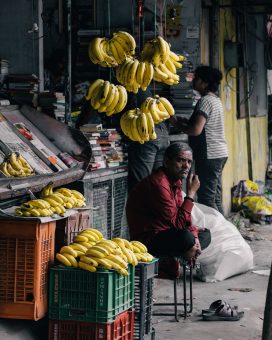
Every year, millions of tons of agricultural waste are produced in Pakistan due to the cultivation of bananas and other crops. To utilize this waste and benefit the local population, scientists have joined forces to develop a solution that will turn this waste material into useful products.
Academics from Northumbria University in the United Kingdom have teamed up with colleagues from Pakistan to create a new solution. Together, they are developing an innovative two-part system – the first part will use new technology to convert banana waste into textile fibers, while the second part will use the waste generated from that process to produce renewable energy.
This will reduce the environmental impact of Pakistan’s textile industry while providing clean energy to 50 percent of the rural population that lacks access to the grid and relies on fossil fuels.
The research team has designed a process to extract fibers from banana plant residues, which are typically discarded. These fibers can be used to produce textiles that are not only environmentally friendly but also durable and versatile. Potential uses range from clothing to household items, providing a sustainable alternative to traditional materials.
More:
- New EU Rules to Improve Urban Wastewater Treatment and Reuse
- Up to 11 Million Tons of Plastic at the Bottom of the Ocean
- Eight ways to overcome the waste pollution crisis
Additionally, the remaining biomass from banana plants would be used to generate renewable energy. This dual approach not only facilitates the management of agricultural waste but also contributes to the production of clean energy.
“The process has potential and could be applicable to almost any form of agricultural waste, meaning it could be used worldwide, benefiting communities and the environment by supplying renewable textiles and energy,” stated officials from Northumbria University.
The project, titled “Sustainable Access to Renewable Energy in Rural Pakistan using Agro-Food and Fiber Waste as Renewable Fuel (SAFER),” has received approximately £300,000 through the UK’s national innovation agency.
It is estimated that the banana-growing industry in Pakistan produces around 80 million tons of agricultural waste annually. This could result in the production of over 57,488 million cubic meters of synthetic gas, known as syngas (a gas created through chemical processes using waste products), as well as 30 million tons of nitrogen-enriched biofertilizers.
An ecological revolution has already begun in Uganda, where banana waste is being turned into sustainable textiles, biodegradable extensions, vegan leather, or carbonized residues into smokeless briquettes, offering solutions for clean energy.
Energy Portal

